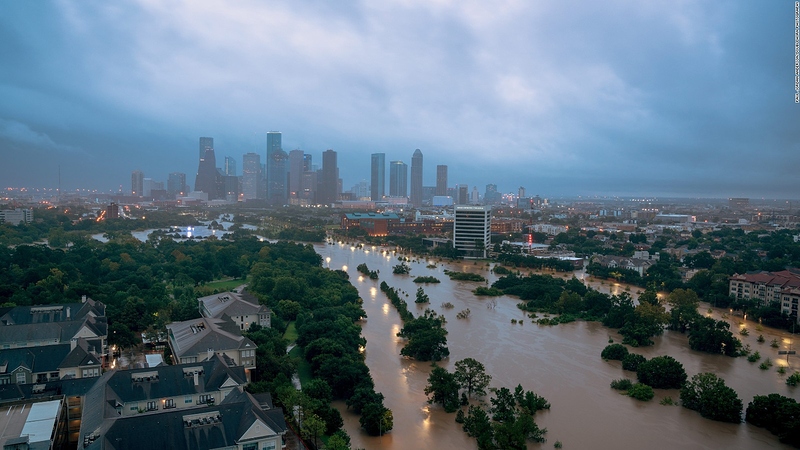Philosopher Timothy Morton teaches at Rice University in Houston, Texas. This put him directly in the path of Hurricane Harvey, which struck Houston and the surrounding Gulf Coast in August 2017, killing dozens of people, displacing ten of thousands, and causing an estimated $125 billion in damage. In The Atlantic, Morton reflects on the experience and what it revealed about the vast difference between human time and what he terms “hurricane time.” Here’s an excerpt:
Ecological thinking involves being aware that things are happening on all kinds of space and timescales at once. What looks great this week, like storing bread in a cupboard, looks terrible when you keep doing it for 12,500 years. Like for Dory in Finding Nemo, survival mode is assumed—“just keep swimming.” The trouble is, survive can come into very sharp conflict with live or thrive. No one at the start of the Neolithic period wanted to cause catastrophic global warming in the early 21st century—and neither do we who live in it today. But the extremely hierarchical and rigid societies that the actions of settling down, forming cities, storing grain, and spreading population created eventually resulted in just that outcome.
Some of these scales are so big, in time and space terms, that all we can do, even with powerful helpers like computers, is report, observe, and endure. These actions hardly seem like actions at all: Often, they look suspiciously passive—and therefore disquieting. We should be in charge! In moments like this, people forget that trying to be in charge, to be “on top of” everything (a telling metaphor) might have been part of what got us into this global-warming thing in the first place.
The trouble is, human civilization has inherited ideas about being active and passive, especially from theistic medieval philosophy. Passivity involves susceptibility, which risks sin and thus leans toward “evil.” Activity, meanwhile, is associated with divine creation, immortality, and closeness to God, and is therefore “good.” That’s a pretty strong contrast. But things might not be like that. If you’ve ever been in a band, you’ll know that doing something (in that case, playing the guitar or whatever) is made up of both playing and listening: being receptive or appreciative. “Active” and “passive” are blunt instruments for understanding what the climate is doing to humans, and what we can do in response.
Image: Hurricane Harvey flooding in Houston. Via CNN.
